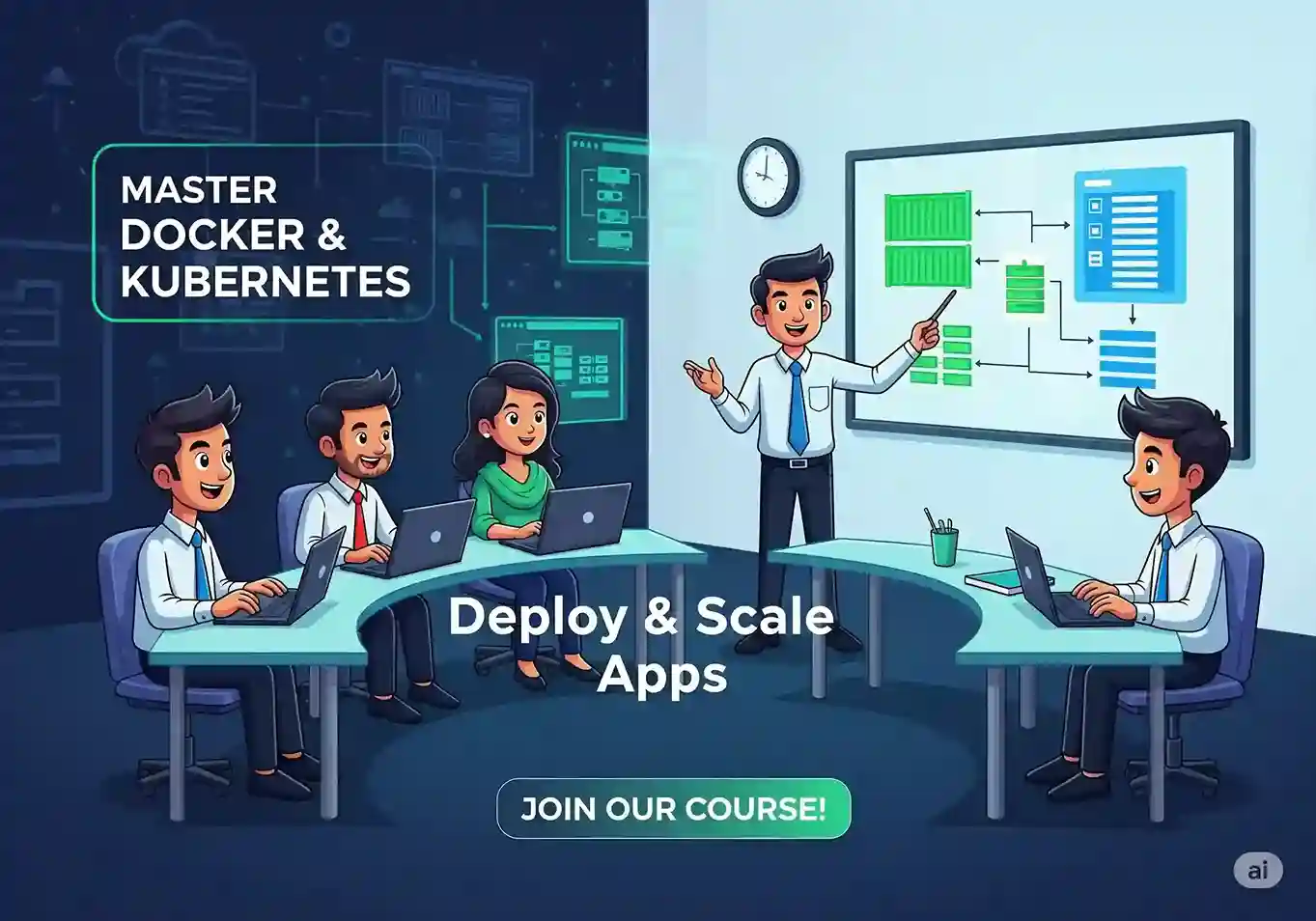Scalable Deployments
Learn to efficiently package, deploy, and manage applications at any scale in a live production environment.
Step into the world of modern DevOps with our Docker and Kubernetes Essentials course in Sivakasi. This program is designed to give you hands-on experience with the industry's most critical tools for containerization and orchestration. Learn how to package applications with Docker and manage them at scale with Kubernetes, unlocking the power of cloud-native development.

Learn to efficiently package, deploy, and manage applications at any scale in a live production environment.
Acquire critical DevOps skills that are in extremely high demand across the global technology sector.
Understand the principles of building and managing modern, resilient, and cloud-ready applications.
Gain the essential skills required for high-paying roles like DevOps Engineer, Cloud Engineer, and SRE.
Docker is a tool that packages applications and their dependencies into lightweight, portable units called containers. Kubernetes is an orchestration platform that automates the deployment, scaling, and management of these containerized applications across clusters of servers.
Some foundational knowledge of programming concepts or system administration is recommended to get the most out of this course. However, we cover the core principles from the beginning, making it accessible to those new to DevOps.
With Docker and Kubernetes skills, you can efficiently deploy, manage, and scale complex applications in any production environment, whether on-premise or in the cloud. You will be able to build resilient and modern software delivery pipelines.
This focused course is designed to be completed in 3 to 6 months, depending on your individual learning pace and weekly time commitment.
Yes, absolutely. Containerization and orchestration are cornerstones of modern DevOps and cloud-native application development. These skills are more in-demand than ever and are fundamental for roles in cloud engineering, DevOps, and SRE.
Key trends for 2025 include the rise of serverless containers (like AWS Fargate and Google Cloud Run) that abstract away server management, AI-driven orchestration for predictive scaling and self-healing, and sophisticated multi-cloud strategies using tools like service meshes.